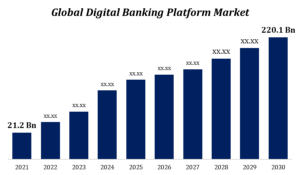The History and Trends of Fintech in the DACH Region
In this whitepaper, we explore how financial technology has developed in German-speaking countries, what it looks like today, and what the future holds.
Germany, Austria, and Switzerland, also known as DACH countries, are often seen as the most conservative in their approach to finances. People in those countries tend to question innovation in finance and won’t give up their cash-based habits easily.
However, the change is like an avalanche. You can resist it as much as you want to, but you can’t stop it. That avalanche hit the DACH region the hardest during the COVID-19 pandemic, payments the new norm.
This whitepaper answers these questions:
- Did German-speaking societies embrace the change?
- When did financial technology (Fintech) emerge in the DACH region?
- How has it been developing?
There aren’t many studies providing a Fintech overview for DACH as a whole, so we had to look at separate sources for Germany, Austria, and Switzerland. Most studies we have found are dedicated to the German and Swiss markets, while the information on Austrian Fintech is lacking.
Given the heterogeneity of sources, this overview should not be considered a comparative study of the three countries. Instead, it should help you understand the specifics of each country and the things they have in common.
History of Fintech in DACH Countries
The 1990s
First attempts to create digital financial services in Germany date back to the late 1990s, when the dot-com bubble was about to burst.
The 2000s
Researchers name the late 2000s as the period when Fintech began to emerge in Germany. According to a 2019 study by Haddad and Hornuf, this emergence was triggered by recent financial crises. As a result of the crises, traditional banks lost people’s trust and it became difficult for companies to get funds the old way.
The 2010s
During this period, 233 German FinTech companies shut down, according to PwC’s Cooperation Radar.
Further, 2013 and 2014 saw many new companies inspired by the hype on the market. Most of those start-ups were not prepared for the competition they would face. As a result, about 175 of them shut down
The 2020s
2020 delivered a huge blow to the German Fintech scene. And it’s not the coronavirus to blame.
Switzerland
In Switzerland, the Fintech scene began to emerge at about the same time as in Germany.
One of its most successful representatives, Qumram was founded in 2010. The platform helped with compliance, fighting fraud, and improving customer experience. In 2017, it was acquired by the US technology giant Dynatrace.


































